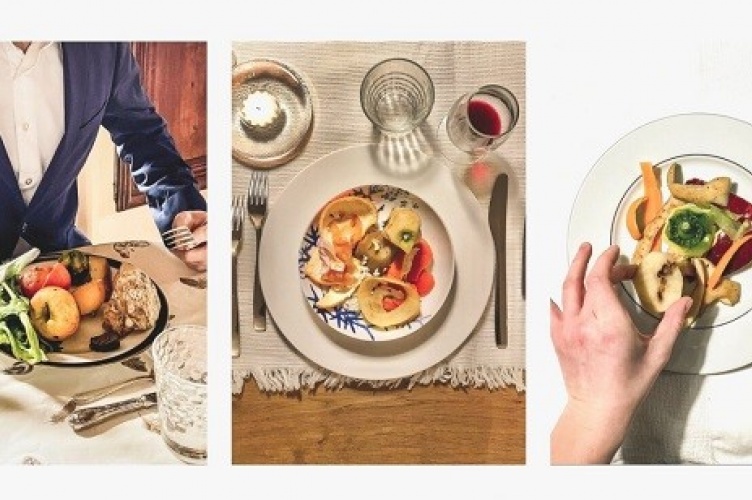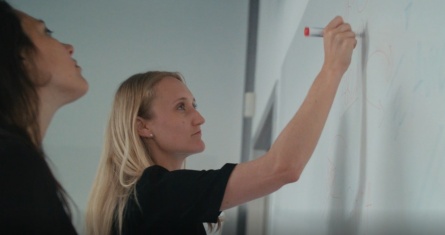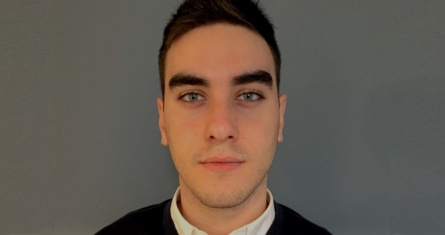Faced with ecological change and growing uncertainty due to the spread of the Covid-19 pandemic, there is an urgent need to move away from utilitarian education, focused on financial profitability. To understand what lies ahead, it is necessary that students have more than just recipes and ready-to-think methods.
To meet these challenges, ESCP chooses a detour through art. The history of artists of the past century testifies to their ability to overturn certainties and reinvent normality.
The ESCP Turin Campus Option-E cohort of students from the Master in Management, organised in partnership with Cottino Social Impact Campus, kickstarted the semester with a disruptive workshop: the Improbable seminar, a 3-day training course based on the Art Thinking method.
This flexible method, designed by Sylvain Bureau, Scientific Director of the Jean-Baptiste Say Institute and ESCP Professor, makes it possible to create the improbable with certainty.
"In our Option-E in Impact Entrepreneurship, students need to learn right from the start how to play with different levels of uncertainty and how to even destroy some of your created work. This builds a crucial mindset for their entrepreneurial journey within the next months," declared Alisa Sydow, Assistant Professor of Entrepreneurship & Innovation at the ESCP Turin Campus, where she is also the Campus Head of the Jean-Baptiste Say Institute.
The Impact Entrepreneurship specialisation trains a new generation of impact entrepreneurship experts, who will be capable of creating value in companies while becoming agents of change, promoting sustainability that is both economic and socially conscious.
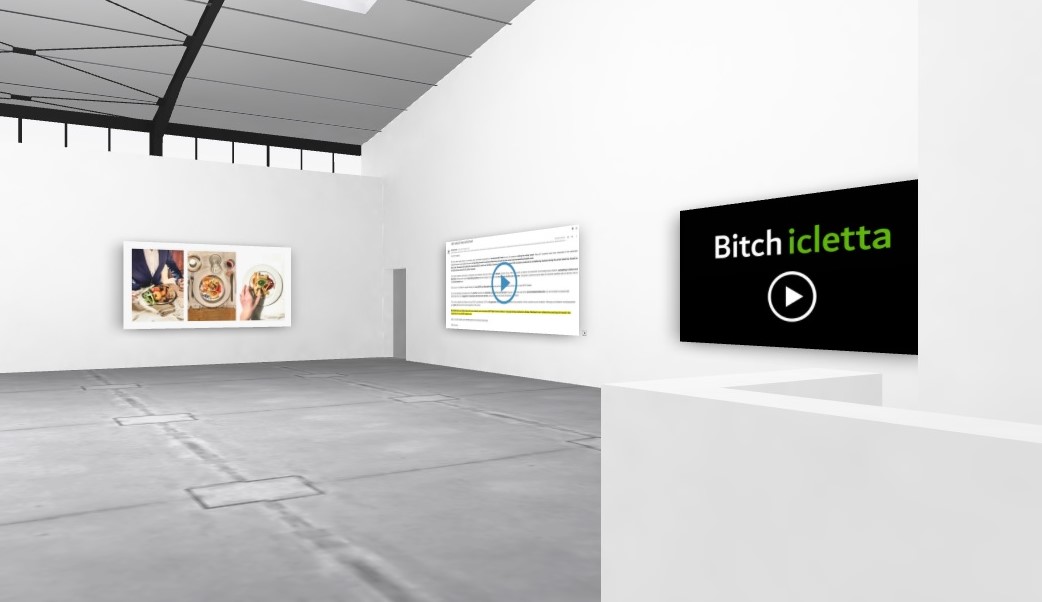
Led by artists and ESCP professors, participants had access to conferences, creative workshops, and mentoring sessions.
Supported in their journey, students created works of art that reimagine the world in the context of Covid-19.
"It was the first time we did the Art Thinking Workshop in Italy. And I was super happy to do it with the Option-E Turin! The students were very involved and engaged. The pieces that they created are truly improbable and raise critical questions," said Sylvain Bureau.
Art Thinking not only helps participants unlock hidden creativity, but also stimulates collaboration, listening, leadership, negotiation and healthy confrontation. Participants challenge themselves, learn to build on failure, establish partnerships and develop an agile approach to uncertainty.
Let's explore the six steps of the Art Thinking method:
The Art Thinking method is a hybrid of two disciplines, art and entrepreneurship, around three main phases - doing, criticizing and exhibiting – and six practices.
At the core of the Art Thinking workshop, there is the creation of a piece of art that gives participants the chance to learn by doing. The students, are divided into small teams and cooperate to tackle a real-world challenge through the Art-Thinking Method, which involves:
- Donation: Gift-giving practices to foster new and unusual partnerships.
- Deviation: "Steal" from others to create unique propositions.
- Drift: Follow a journey without a clear goal but which will eventually make a lot of sense.
- Destruction: Challenge existing rules and values as well as unlearn taken-for-granted assumptions.
- Dialogue: Discuss to learn, understand and change what has been created.
- Display: Exhibit works to get feedback.
The aim of the workshop is to experience the creativity of artistic thinking and to use it in a business context.
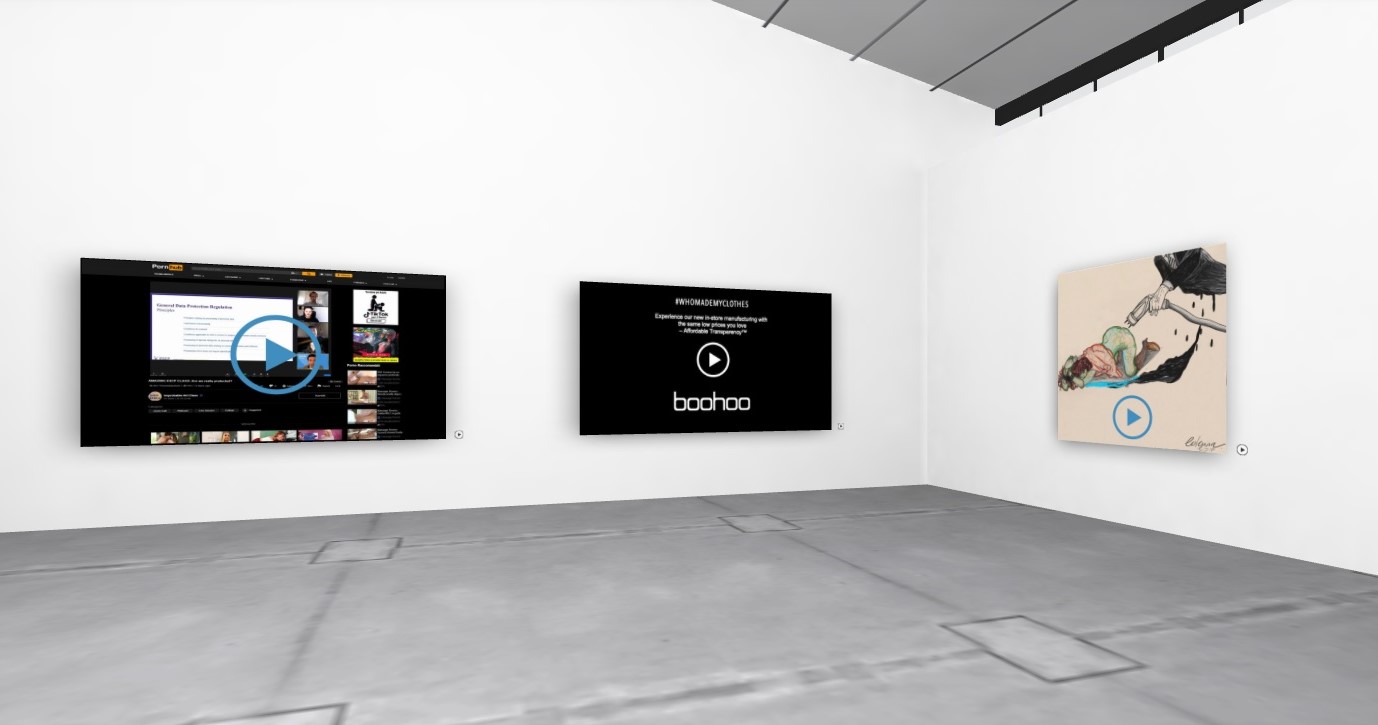
On January 14, Option-E students presented online, in a virtual art exhibition, six works of art created to rethink our world and challenge the status quo.
They are:
Deviated protection, by Arianna Pricco, Gian Nicolò Bernini, Hugo Fixot and Ruben Rinaldi, reflects on the issue of control over personal information and respect of individuals’ privacy.
#Whomademyclothes?, by Giacomo Bertazzolo, Federica Catalano, Aurélie de Parseval and Patrick Raic, questions fashion brands’ unethical practices by putting them on display.
Plug the future in, by Caterina Coser Di Pasquale, Edoardo Marchi, Oscar Alberto Casalegno and Arthur Fohrer, shows the divergence of opinions and actions between generations and how concern about the planet and environmental issues has widened the gap between them.
Entrée – Plat – Déchets, by Matthieu Camus, Jean-Baptiste Deroche, Nils Marchand Agnese and Annalisa Tramannoni, illustrates the millions of tons of food wasted every year through an Instagram page showing discarded food.
E-SC(P)andal, by Caterina Nassi, Francesco Cundari, Giada Gatti, Pietro Carabelli and Romain Van Gaver, measures the overall sentiment related to the environmental crisis and our moral values.
BITCH-ICLETTA, by Augusto Colongo, Francesca Badiali, Matteo Mantovani, Pietro Brondello and Roland De La Fresnaye, examines the unfair conditions for food delivery workers.
Guests from the ESCP community were invited to contribute to the dialogue and create these new worlds by discussing the works displayed with their creators.
Take an online tour of the Art Thinking Collective – Improbable Turin 2021 exhibition.
Campuses
